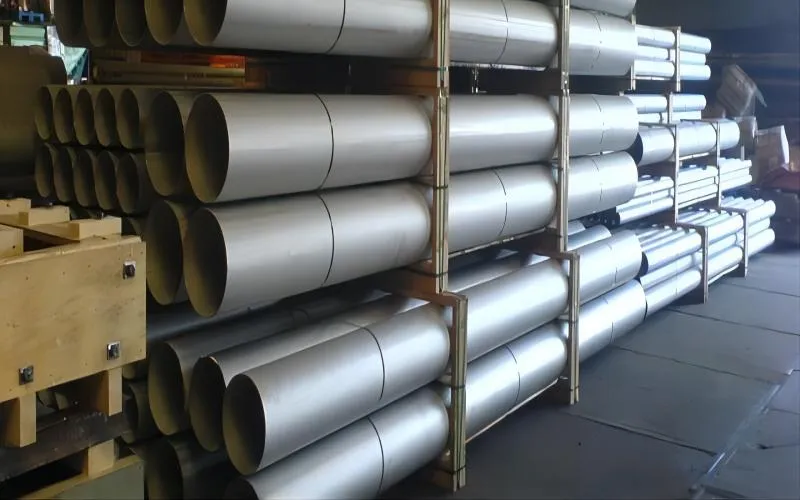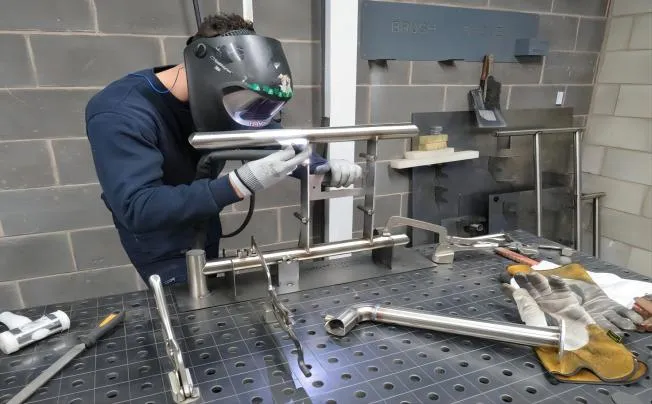What is a Medical Stainless Steel Tube?
Medical stainless steel tubes are a particular kind of stainless steel tubing that is intended for use in medical settings. Because of its special qualities, which include resistance to corrosion, high and low temperatures, and both, it is frequently utilized in a variety of medical procedures and equipment.
High-quality stainless steel, such as German stainless steel AISI 420, is used in the fabrication of medical stainless steel tubes, ensuring their dependability and longevity. The smooth surface quality that these tubes give, which is crucial for medical applications to reduce the danger of contamination and enable simple cleaning, is frequently highly polished.
Stainless steel tubes are used in the medical business for many different purposes, such as implants, surgical instruments, medical devices, and diagnostic equipment. These tubes are excellent for use in important medical operations and treatments because of their strength, flexibility, and biocompatibility.
What is Food Grade Stainless Steel Pipe?
A type of stainless steel pipe that is specially made and intended for use in the food and beverage sector is known as “food-grade stainless steel pipe.” It is built using premium stainless steel that satisfies national requirements for food-grade materials, such as AISI 304 or AISI 316L.
In sectors where stringent hygiene regulations are crucial, like food processing, dairy, brewing, pharmaceuticals, and chemical processing, food-grade stainless steel pipes are recommended. The tight specifications of hygienic procedures are met by the design of these pipes, guaranteeing the secure and hygienic transfer of drinks, food items, and other liquids.

Important Characteristics and Advantages of Food-Grade Stainless Steel Pipes
Resistance to corrosion
Food-grade stainless steel pipes guarantee the integrity and purity of the materials being conveyed because of their exceptional corrosion resistance.
Simple to maintain
Stainless steel is perfect for situations where cleanliness is important since it is simple to clean and sanitize.
Durability: These pipes are well-known for their long service lives, even in harsh settings.
High-temperature resistance: Food-grade stainless steel pipes are suitable for a variety of food processing and sterilization procedures because they can withstand high temperatures.
Compliance with standards: Food-grade stainless steel pipes follow industry guidelines and standards, guaranteeing the safety and calibre of food products.

What Separates Food Grade Stainless Steel Tubing From Medical Stainless Steel Pipe?
There are some important distinctions between medical stainless steel pipe and food-grade stainless steel pipe, but there are also some parallels.
- Intended Use: Food-grade stainless steel tubing is made especially for the food and beverage sector, where it is utilized to convey liquids such as drinks and food items. Conversely, medical stainless steel pipes are made for use in surgical tools, medical devices, implants, and diagnostic equipment, among other medical applications.
- Hygiene Standards: Strict hygiene guidelines are followed by both food-grade and medical stainless steel goods. However, the food sector and the medical field may have different standards for hygienic practices. To guarantee the secure transportation of food goods, food-grade stainless steel tubing needs to adhere to the regulations established by relevant authorities. In contrast, medical stainless steel pipes need to adhere to strict standards for cleanliness and sterilization in order to protect patients and stop infections.
- Material composition: Although premium stainless steel is used to make both kinds of items, different grades may be utilized. Because of its reputation for resistance to corrosion and food safety, AISI 304 and AISI 316L stainless steel are frequently used to make food-grade stainless steel tubing. AISI 304 or AISI 316L are two further specialized grades that may be used in medical stainless steel tubing, depending on the particular medical purpose.
- Regulatory Compliance: Food-grade stainless steel tubing needs to go by rules and guidelines that are exclusive to the food business, like the US Food and Drug Administration’s laws. The medical industry’s regulations, including those established by the FDA and ISO (International Organization for Standardization), must be satisfied by medical stainless steel pipe.


